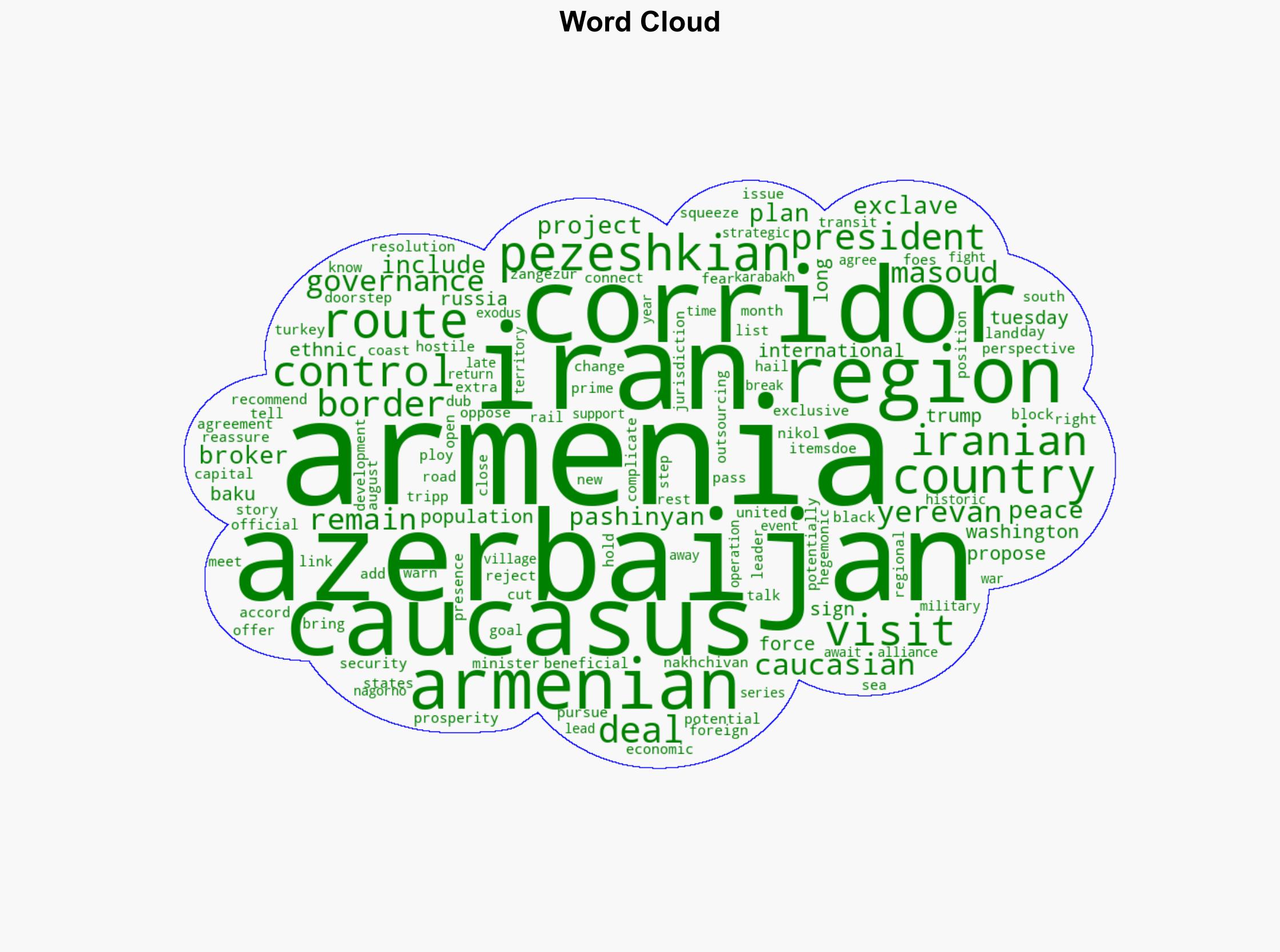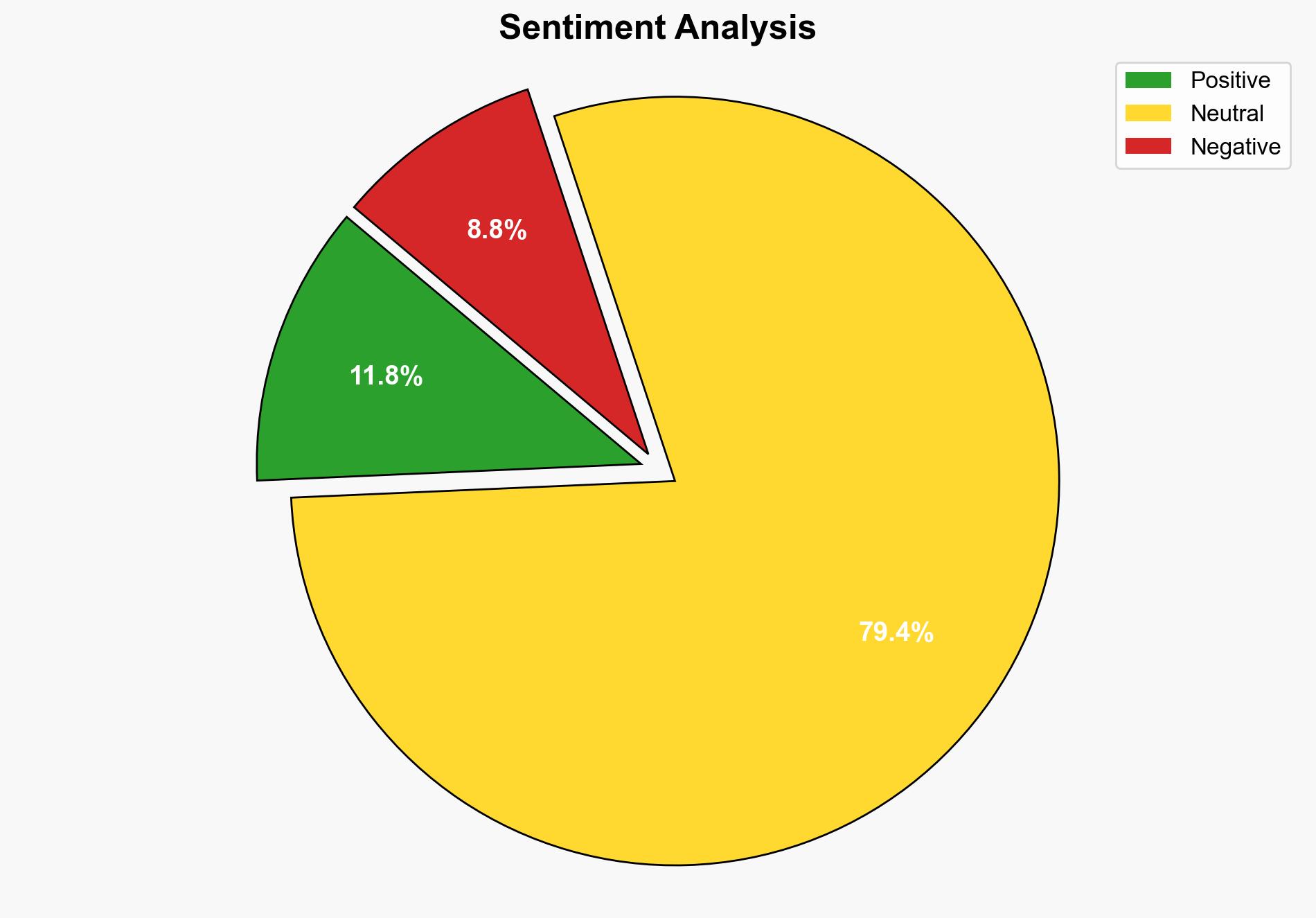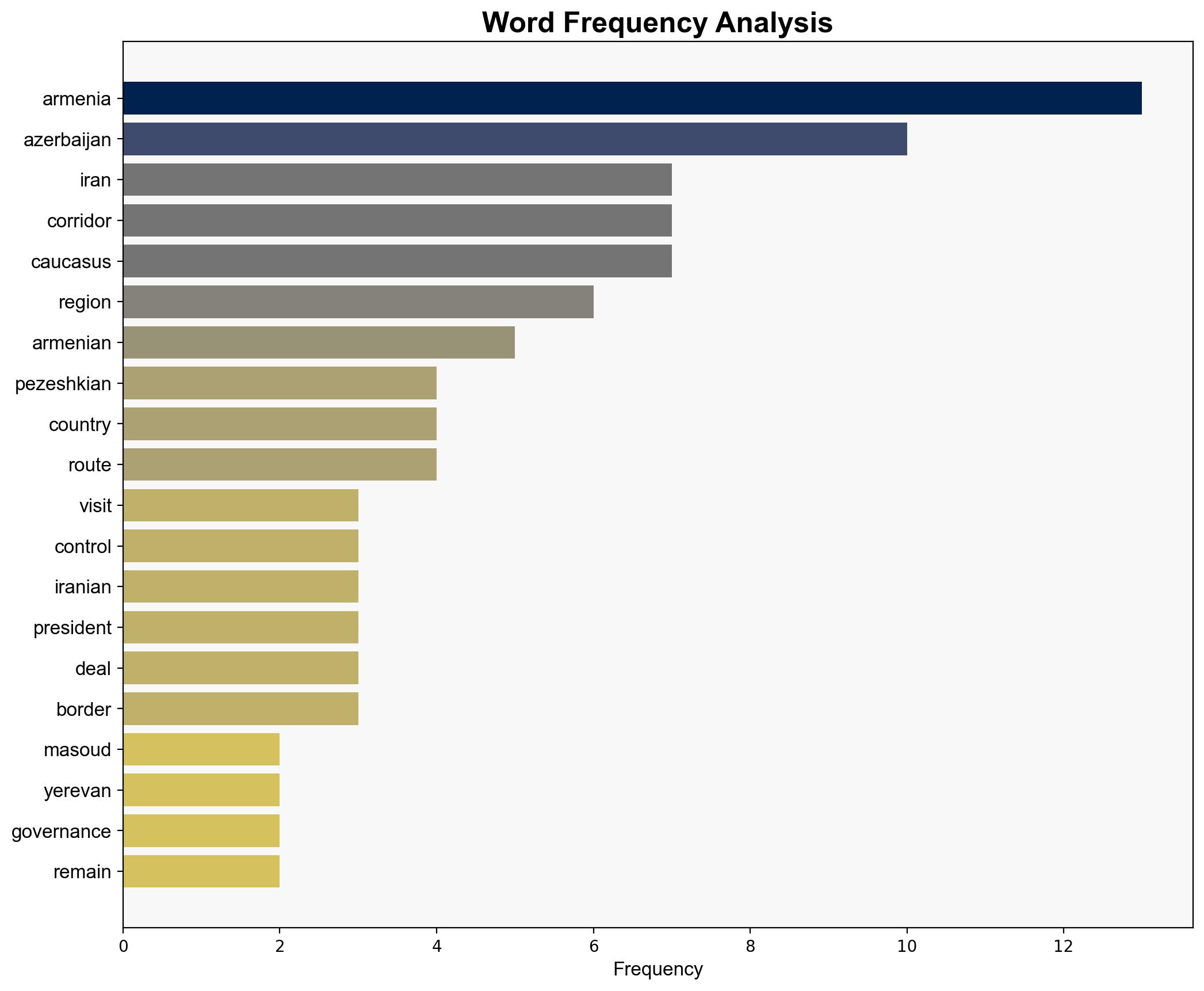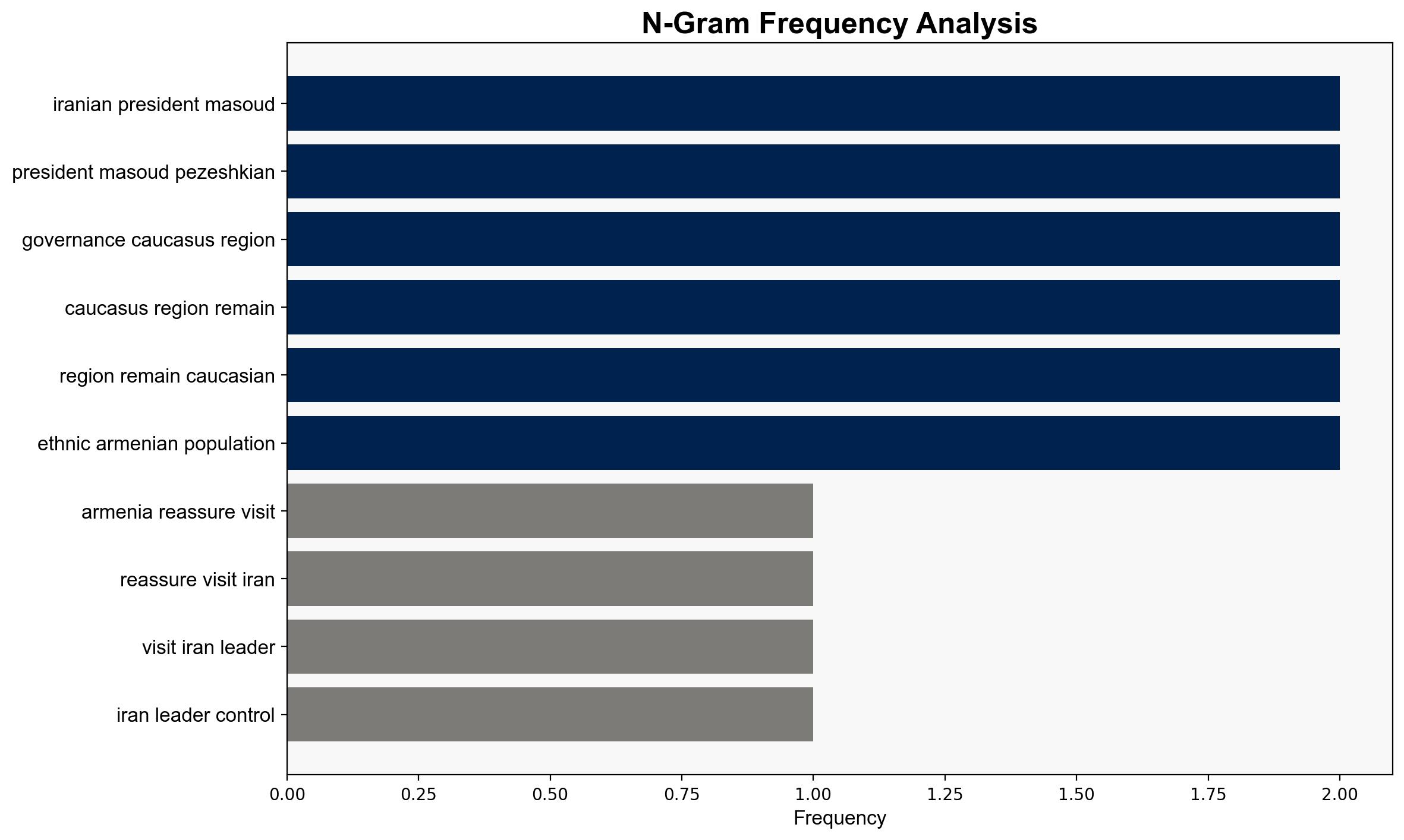Armenia reassures visiting Iran leader it will control Azerbaijan corridor – Al Jazeera English
Published on: 2025-08-19
Intelligence Report: Armenia reassures visiting Iran leader it will control Azerbaijan corridor – Al Jazeera English
1. BLUF (Bottom Line Up Front)
Armenia’s assurance to Iran regarding control over the Azerbaijan corridor is a strategic move to maintain regional influence and counter external pressures. The most supported hypothesis suggests Armenia seeks to balance its geopolitical position between Iran and Western interests, while mitigating potential threats from Azerbaijan and Turkey. Confidence level: Moderate. Recommended action: Monitor Armenia’s diplomatic engagements and infrastructure developments closely, as they may signal shifts in regional alliances and power dynamics.
2. Competing Hypotheses
1. **Armenia is leveraging its control over the corridor to strengthen ties with Iran and counterbalance Azerbaijan and Turkey’s influence.** This hypothesis suggests Armenia aims to maintain regional stability by aligning with Iran, which opposes changes in international borders and external influence in the Caucasus.
2. **Armenia is using the corridor as a bargaining chip in negotiations with Western powers, potentially seeking economic and security assurances.** This scenario posits that Armenia is open to Western influence, using the corridor to gain leverage in broader geopolitical negotiations, possibly involving the U.S.-brokered peace accord.
3. Key Assumptions and Red Flags
– **Assumptions**: Armenia’s assurances to Iran are genuine and not a strategic deception. Iran’s opposition to the corridor is primarily driven by security concerns rather than economic interests.
– **Red Flags**: Lack of transparency in Armenia’s long-term strategic goals. Potential underestimation of Azerbaijan and Turkey’s response to Armenia’s control over the corridor.
– **Blind Spots**: Limited insight into internal Armenian political dynamics and potential influence of external actors like Russia.
4. Implications and Strategic Risks
– **Geopolitical Risks**: Increased tensions between Armenia and Azerbaijan could escalate into military conflict, drawing in regional powers.
– **Economic Implications**: The corridor’s development could alter regional trade routes, impacting economic alliances and dependencies.
– **Security Concerns**: The presence of foreign forces near Iran’s border could heighten security tensions, potentially leading to military posturing or conflict.
5. Recommendations and Outlook
- Monitor Armenia’s diplomatic engagements with Iran and Western countries for shifts in strategic alliances.
- Assess infrastructure developments in the corridor for indications of increased foreign involvement.
- Scenario Projections:
- Best Case: Armenia successfully balances relations, leading to regional stability and economic growth.
- Worst Case: Escalation of conflict with Azerbaijan, drawing in regional powers and destabilizing the Caucasus.
- Most Likely: Armenia continues to navigate a complex geopolitical landscape, maintaining a delicate balance between Iran and Western interests.
6. Key Individuals and Entities
– Nikol Pashinyan
– Masoud Pezeshkian
7. Thematic Tags
national security threats, regional focus, geopolitical strategy, economic corridors




